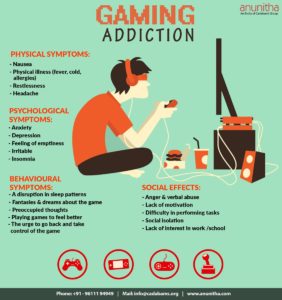
Video Game Addiction Rehab: How to Get the Help You Need
Related Articles
- Unlocking The Treasure Chest: How To Secure Game Publisher Deals For Your Indie Game
- How to Play the Game Puzzle Bobble: A Comprehensive Guide
- How to Play the Game Tank Mayhem
- Level Up Your Future: How To Score An Esports Scholarship And Fund Your Gaming Dreams
- How to Play Bullet Fury: A Comprehensive Guide
Introduction
Welcome to our in-depth look at Video Game Addiction Rehab: How to Get the Help You Need
Video Game Addiction Rehab: How to Get the Help You Need

The world of video games is a vibrant and engaging one, offering immersive experiences, social connections, and even opportunities for skill development. But for some, this digital realm can become a trap, leading to a condition known as video game addiction. This article delves into the complex nature of video game addiction, exploring its symptoms, causes, and most importantly, the effective treatment options available.
Understanding Video Game Addiction:
Video game addiction, also known as gaming disorder, is a behavioral addiction characterized by excessive and uncontrolled gaming that negatively impacts various aspects of an individual’s life. It’s not just about spending hours on end in front of a screen; it’s about the inability to control the urge to play, even when it leads to detrimental consequences.
Signs of Video Game Addiction:
Identifying the signs of video game addiction can be the first step towards seeking help. Here are some common indicators:
- Preoccupation with gaming: Constant thoughts about gaming, planning the next session, or fantasizing about game scenarios.
- Withdrawal symptoms: Feeling restless, irritable, or depressed when not gaming.
- Tolerance: Needing to play for longer periods to achieve the desired effect or feeling less satisfied with the same amount of gameplay.
- Neglecting responsibilities: Prioritizing gaming over work, school, relationships, or personal hygiene.
- Lying about gaming habits: Hiding the extent of gaming time or the consequences of addiction.
- Social isolation: Withdrawing from friends and family in favor of gaming.
- Physical health problems: Experiencing sleep deprivation, eye strain, carpal tunnel syndrome, or weight gain due to sedentary behavior.
- Financial problems: Spending excessive amounts of money on games, in-game purchases, or equipment.

Causes of Video Game Addiction:
While the exact causes of video game addiction are complex and multifaceted, several factors contribute to its development:
- Psychological factors: Individuals with underlying mental health conditions such as depression, anxiety, or attention-deficit/hyperactivity disorder (ADHD) may be more susceptible to addiction as gaming can offer a temporary escape from these issues.
- Neurochemical factors: Video games can stimulate the release of dopamine, a neurotransmitter associated with pleasure and reward. This can create a cycle of dependence, where individuals seek the pleasurable sensation associated with gaming.
- Social factors: The competitive nature of many online games can create a sense of community and belonging, particularly for individuals who struggle with social interaction in real life.
- Game design features: Certain game mechanics, such as loot boxes, reward systems, and social pressure, can be intentionally designed to promote engagement and increase the likelihood of addiction.
Seeking Professional Help:
If you suspect you or someone you know might be struggling with video game addiction, it’s crucial to seek professional help.
1. Recognizing the Problem:
The first step is acknowledging the issue and understanding the impact it has on your life.
2. Seeking Professional Guidance:
- Mental health professionals: Therapists specializing in addiction treatment can provide individual or group therapy to address the underlying psychological factors contributing to addiction.
- Psychiatrists: Can evaluate for co-occurring mental health disorders and prescribe medication if necessary.
- Addiction treatment centers: Offer specialized programs designed to address video game addiction and provide support during recovery.
Treatment Options:
Video game addiction treatment often involves a combination of approaches:
- Cognitive-behavioral therapy (CBT): Helps individuals identify and change negative thought patterns and behaviors associated with addiction.
- Motivational interviewing: Encourages individuals to explore their own reasons for change and develop a plan for recovery.
- Family therapy: Addresses the impact of addiction on family dynamics and helps family members learn how to support the individual in recovery.
- Medication: In some cases, medication may be prescribed to address underlying mental health conditions or manage withdrawal symptoms.
- Support groups: Provide a safe and supportive environment for individuals to share their experiences, connect with others in recovery, and develop coping mechanisms.
Rehab Programs:
Rehab programs for video game addiction offer a structured and supportive environment for recovery. These programs typically involve:
- Detoxification: This phase focuses on abstaining from gaming and managing withdrawal symptoms.
- Therapy sessions: Individual and group therapy sessions address the underlying causes of addiction, develop coping mechanisms, and enhance life skills.
- Skill-building activities: Participants engage in activities that promote self-esteem, emotional regulation, and healthy social interactions.
- Aftercare planning: Develops strategies for maintaining recovery after leaving the program, including ongoing therapy, support groups, and relapse prevention plans.
Tips for Preventing Video Game Addiction:
- Set limits: Establish clear boundaries for gaming time and stick to them.
- Prioritize other activities: Engage in hobbies, sports, social events, or other activities that bring joy and fulfillment.
- Balance screen time: Limit overall screen time, including television, social media, and other digital devices.
- Seek support: Talk to friends, family, or a therapist about your concerns and seek support from others.
- Be mindful of game design: Recognize the potential for addiction in certain game mechanics and avoid games that trigger addictive behavior.
Conclusion:
Video game addiction is a serious condition that can have a profound impact on an individual’s life. However, it is treatable, and with the right support, individuals can regain control and lead fulfilling lives. By understanding the signs, causes, and treatment options, we can empower ourselves and those we care about to seek help and overcome this challenge.
Remember, you are not alone. There are resources available to help you or someone you know recover from video game addiction. Don’t hesitate to reach out for support.
Source URL:
[Please note: As an AI, I cannot provide specific URLs for external sources. However, you can find reliable information on video game addiction and treatment from reputable organizations like the National Institute on Drug Abuse (NIDA) and the American Psychiatric Association (APA). You can also consult with a mental health professional for personalized advice and support.]
Closure
We hope this article has helped you understand everything about Video Game Addiction Rehab: How to Get the Help You Need. Stay tuned for more updates!
Make sure to follow us for more exciting news and reviews.
We’d love to hear your thoughts about Video Game Addiction Rehab: How to Get the Help You Need—leave your comments below!
Stay informed with our next updates on Video Game Addiction Rehab: How to Get the Help You Need and other exciting topics.


